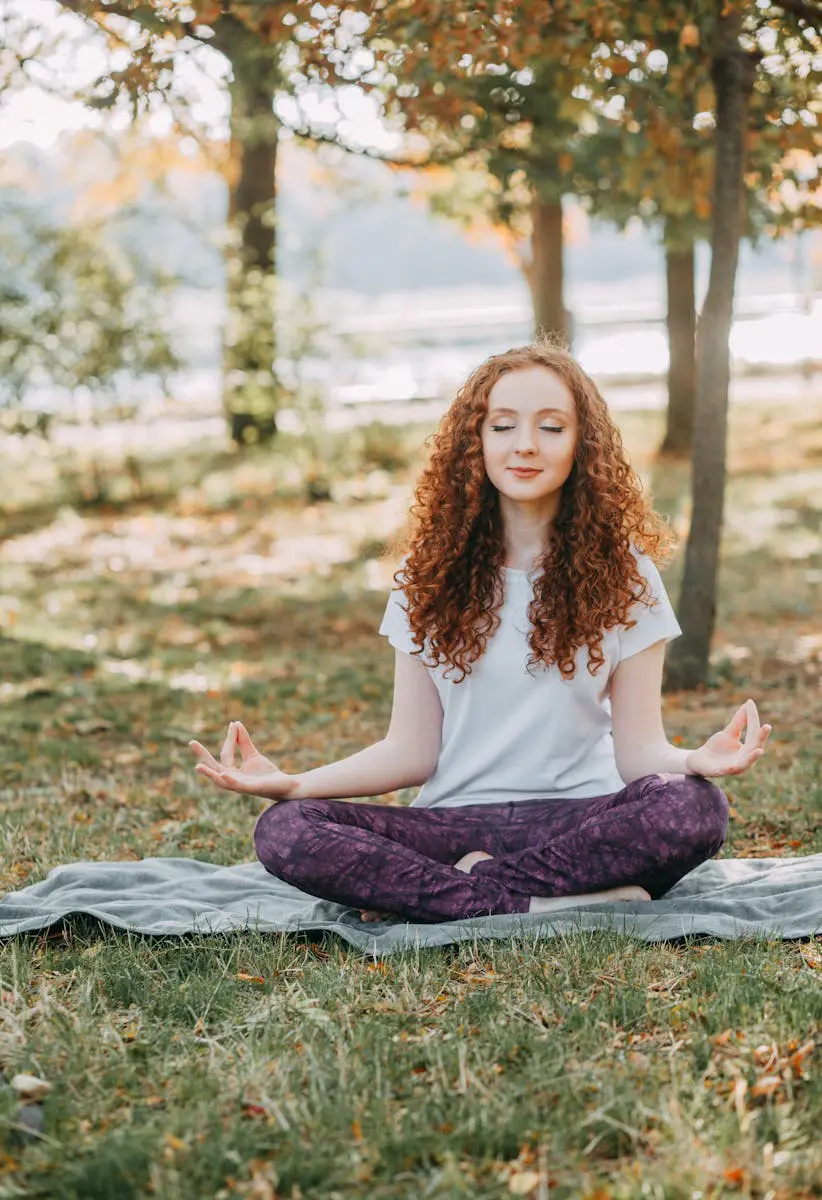
Picture this: You sit down to read an article, answer emails, or even watch a movie – and five minutes later, your mind has already wandered. You’re not alone. Whether you’re 25 or 75, staying focused feels harder than ever. The good news? Scientists say there may be a surprisingly simple fix – and it only takes a few minutes a day.
Have you ever wondered whether just a few minutes of meditation a day can really sharpen your focus? New studies suggest it’s not only possible – it works across age groups, even with short daily habits.
Here’s what scientists found, how it helps healthy aging, and how you can try it (no guru needed).

Why Attention & Focus Matter for Aging
As we age, many of us struggle with distractions, slower reaction times, and reduced ability to focus. These changes aren’t just annoying — they’re tied to declines in cognitive performance, memory lapses, and earlier onset of conditions like Alzheimer’s disease.
So anything that helps maintain attentional control isn’t just about productivity or feeling sharp – it’s about preserving healthspan (the years lived well), not just lifespan.
USC Leonard Davis School Study (July 2025)
You can read the details here and here, but in a nutshell:
- Participants: 69 adults in three age brackets – young (18–30), middle-aged (50–65), and older (65–80).
- Intervention: Daily guided mindfulness meditation using the Headspace app, 10–15 minutes per day for 30 days. Control group listened to an audiobook for the same duration.
- Measurement: Eye-tracking tasks measuring reaction time, goal-directed attention, and distractibility (how much irrelevant visual stimuli diverted focus).
And the Results: The meditation group showed improvements: faster reaction times, more accurate eye-movements toward targets (less distracted by irrelevant stimuli), and stronger goal-directed focus. These gains were consistent across all age groups.
Carnegie Mellon / “Meditation Apps Deliver Real Health Benefits” (August 2025)
This is a review piece published in American Psychologist by CMU researchers. It examined a body of app-based meditation intervention studies.
What it found: Even short, regular use of meditation apps can lower blood pressure, reduce repetitive negative thinking, ease anxiety & depression, improve sleep, and even influence inflammation-related gene expression.
For me, this is a great thing – because I know many people who do not want more chores – and a meditation can sometimes feel like that. But if there are clear benefits AND it does not require hours, then it will be easier to adopt by many people. Moreover, if the apps help – this is even better, imho.
Importantly, the effects are modest but consistent. The key factors are regularity and consistent brief sessions rather than long, infrequent ones.

What Makes These Findings Powerful
- Short time investment: 10-15 minutes/day (USC) or similarly brief meditations via app (CMU), rather than hours of retreat or gym-like practice.
- Objective measurement: USC used eye-tracking, not just self-reports, so we can see cognitive changes, not just feel them.
- Age-independent benefits: Gains in attention were not limited to younger people – older and middle-aged adults benefited similarly. That’s promising for anyone worried about cognitive decline. And yes, this was a very interesting conclusion from these studies.
- Healthspan relevance: Even if these studies didn’t measure whether meditation adds years to your life, maintaining attention, reducing stress, improving sleep, and lowering inflammation are strongly associated with healthier aging and a lower risk of chronic disease.
How to Turn This Into a Habit: Practical, Travel-Friendly Tips
To actually get the cognitive benefits, consistency is key.I know it is often times easier said than done, but the first step is tu actually do something.
To start tonight.
Small.
Just a few minutes.
And then, repeat tomorrow.
And, in time, it will get easier.
Here are tips that make this doable – whether you’re at home, traveling, or between meetings.
- Set a mini-goal: Aim for 10–15 minutes/day of guided mindfulness meditation. Those are the minutes the USC study used successfully.
- Use apps: like in the USC & CMU studies. Pick one you like. Set daily reminders.
- Pair with another habit: After brushing teeth, before a walk, or right after waking up. Habit stacking helps a lot.
- Track progress: Keep a simple journal (just 1-2 lines, e.g., “felt more focused today / less distracted”) or use app logs.
- Practice in small bursts if needed: If 10-15 min straight is tough, divide it (e.g., two 5-minute sessions) – it still seems helpful per the review.
- Make the practice accessible: Apps make it possible anywhere – hotel room, travel layover, etc. Avoid excuses like “I’m not at home.”
Other Related Findings & Supporting Evidence
The CMU review (“Meditation App Revolution”) shows that brief app-based meditations have measurable mental health benefits, including reductions in anxiety, depression, and improvements in sleep. PubMed
Another relevant find: short app-based programs with acceptance training reduce cortisol and blood pressure responses to stress (but those were slightly longer or more structured). Still supports the idea that even low “dose” meditation has downstream physiological effects. Carnegie Mellon University

️ Disclaimers
This article summarizes recent research and is for educational/informational purposes only. It is not medical advice.
Everyone is different: effects may vary depending on baseline cognitive health, sleep, stress, and genetics.
If you have existing mental health conditions, neurological concerns, or are under medication, consult a qualified healthcare provider before starting a meditation program.
Final Thoughts
What strikes me is how doable this is. Just 10–15 minutes a day of guided mindfulness seems enough to sharpen focus, no matter your age. It’s not about becoming a master meditator – it’s about giving your brain a short period of calm, clarity, and focus, daily.
If you’re reading this, you can try it this week: 10 min with an app, note how distractions feel, and see if you find yourself less pulled away by phone notifications or background noise. Because even small wins like that can stack up – and brain health is one of those things where every little improvement counts.
Photo sources: 1, 2, 3
